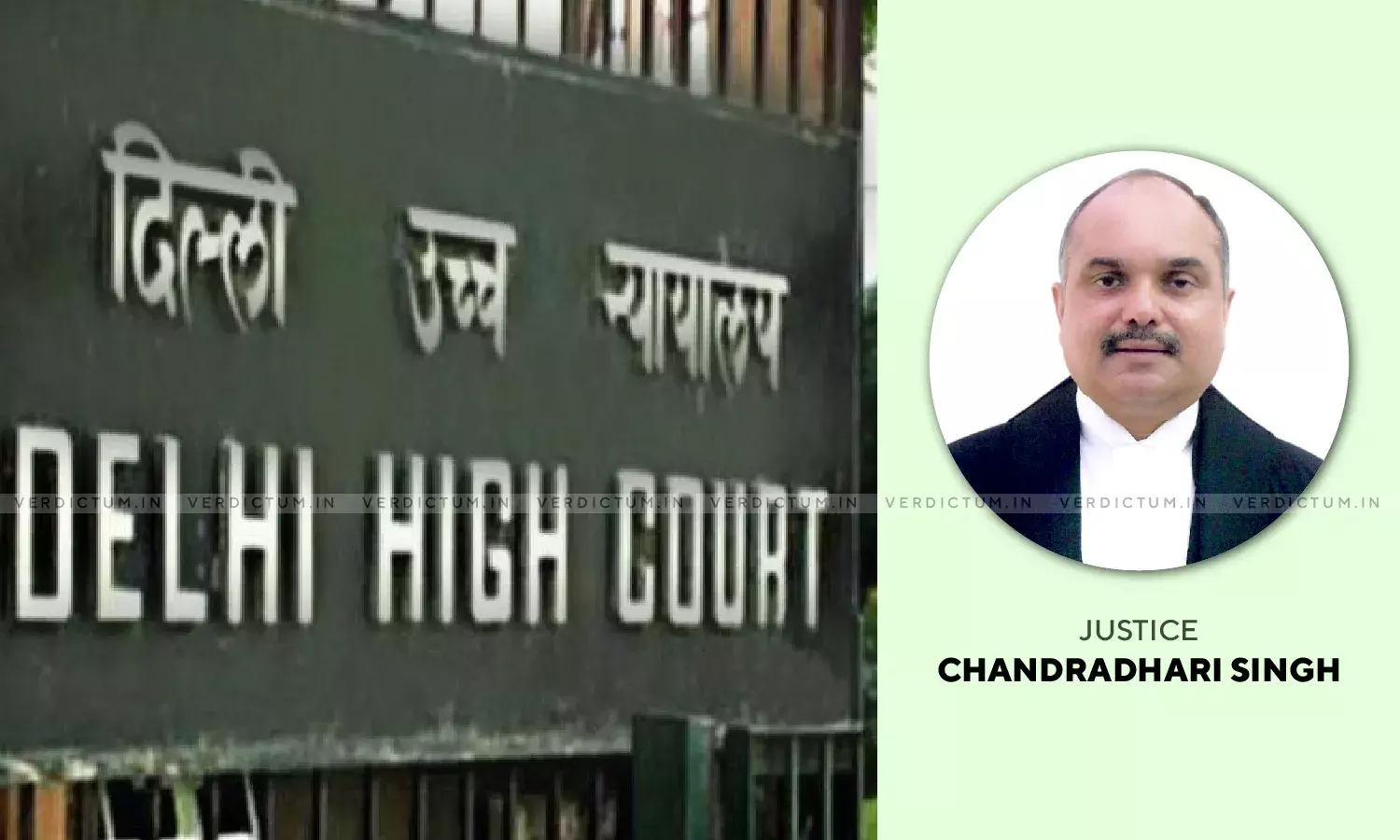Prima Facie Satisfaction Regarding Marital Status Is Sufficient For Ordering Maintenance U/s. 125 CrPC: Delhi High Court

A Single Bench of the Delhi High Court, of Justice Chandra Dhari Singh has upheld the finding of the Family Court regarding existence of marital relationship between parties while holding that under Section 125 of the Cr.P.C, Court is only required to be prima facie satisfied about the marital relationship between parties.
The High Court was hearing an appeal filed by the husband against the order passed by the Family Court directing him to pay the Respondent No. 1 wife maintenance of Rs. 4000 per month and the Respondents No. 2 and 3 children maintenance of Rs. 3000 each till they attain the age of maturity.
The Respondents contended before the Family Court that the Petitioner and Respondent No. 1 had solemnized their marriage according to the Muslim rites and rituals and Respondents No. 2 and 3 were born out of their wedlock. Prior to this marriage the Respondent No. 1 was married to someone else and had four children out of that wedlock and the Petitioner accepted the children from the first marriage.
Due to differences between Respondent No. 1 and the first wife of Petitioner, Petitioner bought a separate house and started living with the Respondents there. Subsequently, due to matrimonial issues between the parties the Petitioner stopped providing maintenance to the Respondents and aggrieved by this the Respondents filed a petition seeking maintenance.
The Petitioner denied being married to Respondent No. 1 and the birth of Respondent Nos. 2 and 3 in that wedlock. Respondent No. 1 refuted the allegation and agreed to carry out a DNA test on Respondent Nos. 2 and 3. The Family Court allowed the commission of the test, but it was not carried out for unstipulated reasons. The Family Court, after considering the evidence and the depositions of witnesses, was of the opinion that the Petitioner and Respondent No. 1 were husband and wife and that Respondent No. 1 was entitled to seek maintenance from herself and for the children and thus passed the impugned judgment.
The High Court considered the degree of proof required to establish a marital relationship required under Section 125 CrPC. Court held that only a prima facie satisfaction regarding marital status is necessary to pass an order under Section 125.
The High Court held that, "One of the material facts to be considered by the Court while entertaining a matter under Section 125 of the Cr.P.C., at the very first instance, is whether the parties before it share a domestic relationship and/or are legally and lawfully married to each other. This becomes a prominent factor to be investigated into, especially, when one of the parties deny any such relationship subsisting between the parties. In matrimonial matters, the question of marriage between the parties may be raised during the preliminary stage and be considered and decided to the prima facie satisfaction of the Court."
The Court also found that the Family Court had appreciated evidence to conclude that there is a marital relationship between parties. The Court held, "It is an established law that the Revisional Court need not re-assess or re-appreciate the material and evidence on record before the Trial Court. A Revisional Court is to limit its jurisdiction for adjudicating upon the material illegalities and irregularities apparent in the impugned orders. The conclusive determination of marital status in cases of maintenance under Section 125 of the Cr.P.C., shall therefore, be declared by the Civil Court and the Revisional Court shall restrain itself to the questions before it without reopening the evidence."
The High Court while upholding the judgment of the Trial Court observed that, "The learned Trial Court was well within the powers while adjudicating the question of whether there existed a relationship between the parties and in doing so, had appreciated the evidence before it to its prima facie satisfaction, which in itself was sufficient to pass the award of maintenance in favour of the Respondents. Furthermore, the Respondents were able to show that they had no source or means of income to sustain themselves and as such it was only the Petitioner who could have maintained them."
Accordingly, the Court dismissed the Revision Petition.

